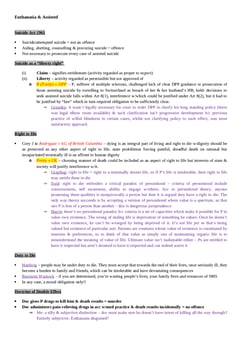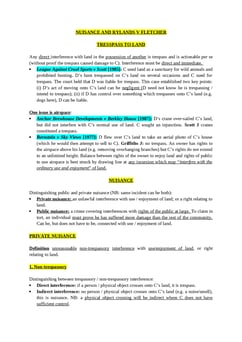Williams v Bermuda Hospital [2016] UKSC 4
By Oxbridge Law TeamUpdated 04/01/2024 07:17
Reviewed ByOxbridge Law Team
Judgement for the case Williams v Bermuda Hospital
Table Of Contents
KEY POINTS
- If the defendant's negligence materially contributed to the harm, they may be held liable, even if their actions were not the sole cause of the injury.
- In this case, the claimant's injury was caused by sepsis resulting from two factors: the hospital's negligent delay and the pre-existing sepsis that was already in progress. When multiple factors cumulatively cause an injury, it does not matter whether these factors operate concurrently or successively.
FACTS
- Mr. Williams went to the hospital with abdominal pain, but there were significant delays in the hospital's handling of his case, including a delayed CT scan and a delay in performing surgery for a suspected acute appendicitis.
- As a result of these delays, Mr. Williams developed sepsis caused by the ruptured appendix, leading to injuries to his heart and lungs.
- He filed a lawsuit against the hospital board responsible for managing the hospital, seeking damages for pain and suffering, medical expenses, and loss of earnings, alleging that the complications were the result of negligent treatment delays.
COMMENTARY
- The decision reinforces the application of the material contribution doctrine, allowing claimants to seek compensation when a defendant's negligence significantly contributes to their harm, even in cases where pinpointing the exact cause may be challenging.
Any comments or edits about this case? Get in touch
For Further Study on Williams v Bermuda Hospital

1,067 total pages
385 purchased
Medical Law notes fully updated for recent exams at Oxford and Cambr...
Need instant answers? Our AI exam tutor is here to help.
Ask questions 🙋 Get answers 📔 It's simple 👁️👄👁️
Our AI is educated by the highest scoring students across all subjects and schools. Join hundreds of your peers today.
Get StartedSimilar Cases
Related Product Samples
These product samples contain the same concepts we cover in this case.
| Tort Law | Causation And Remoteness Notes (22 pages) |
| Medical Law | Medical Negligence Notes (21 pages) |

